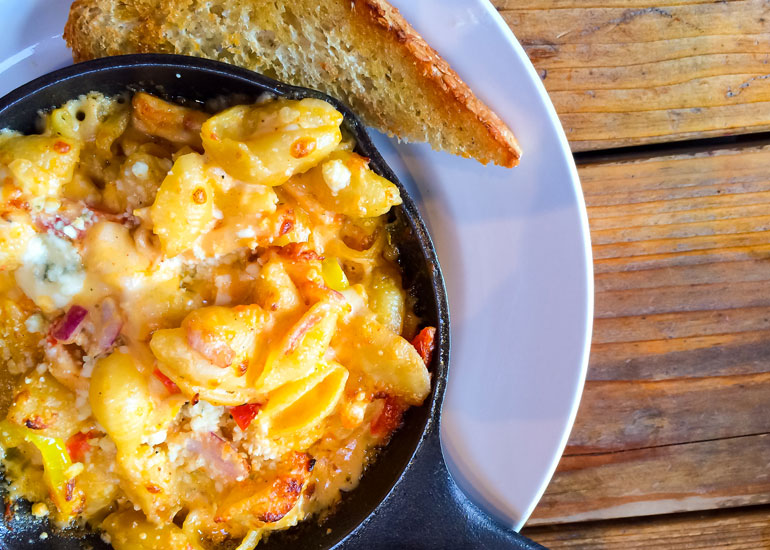Studies show how we hunger for social connection.
Chicken soup. Macaroni and cheese. Apple pie.
Am I making you hungry?
According to a new study, these words do more than whet our appetite. They fulfill our hunger for social connection.
The study, published online last week by the journal Psychological Science, explored the emotional reasons why comfort foods make us feel so good.
The results suggest a strong link between comfort foods and the comfort we get from loved ones; in fact, simply thinking of comfort foods can make us feel significantly less lonely.
In the study, researchers at the University of Buffalo asked undergraduate students to write about a fight with a loved one—an attempt to make these students feel socially vulnerable and threatened. Then they had some of the students write about a comfort food of theirs, while others were asked to write about a new food they'd like to try. Afterward, all the students filled out a survey that recorded how lonely they felt at the moment.
The researchers, Jordan Troisi and Shira Gabriel, found that students who thought about their comfort food felt significantly less lonely than the students who thought about a new food.
However, this was true only for the students who were able to form close, secure relationships with others—something that had been assessed earlier in the study. For people who had a harder time forming secure connections to others, comfort foods didn't have the same effect.
Based on their results, Troisi and Gabriel argue that people associate comfort foods with close friends and family, quite possibly because those foods were originally eaten with (or prepared by) our loved ones; the memory of the person and the memory of the food become intertwined. And it's these associations with loved ones that make comfort foods so comforting—it's as if the foods become a surrogate for the people we hold dear.
"Therefore, the physiological experience of ingesting, or even thinking about ingesting, comfort food automatically activates the experience of psychological comfort that was initially encoded along with the food," the authors write.
But if people don't find much comfort in their relationships to begin with—which was the case for some of the study participants—comfort foods won't be able to work their magic.
In another experiment they ran with a different group of undergrads, Troisi and Gabriel found further evidence of the link between comfort foods and relationships.
Some students in this experiment ate chicken soup, some didn't; then all the students completed a task in which they had to insert missing letters into word fragments. The words could either be completed to spell words associated with relationships (e.g., like, include, welcome) or non-relationship words.
Among the students who'd previously said they considered chicken soup to be a comfort food, students who ate chicken soup were significantly more likely to spell relationship words than were students who hadn't eaten the soup. Their comfort food had made them think about their relationships, perhaps subconsciously, suggest the researchers.
Students who didn't consider chicken soup to be a comfort food weren't more likely to spell relationship words, regardless of whether they'd eaten the soup or not.
Taken together, these results suggest that it's not simply the taste or texture of comfort foods that give them their power; it's the social and emotional associations they conjure up for us.
This story originally appeared on Greater Good, the online magazine of the Greater Good Science Center at UC Berkeley. For more, visit Greater Good online.
